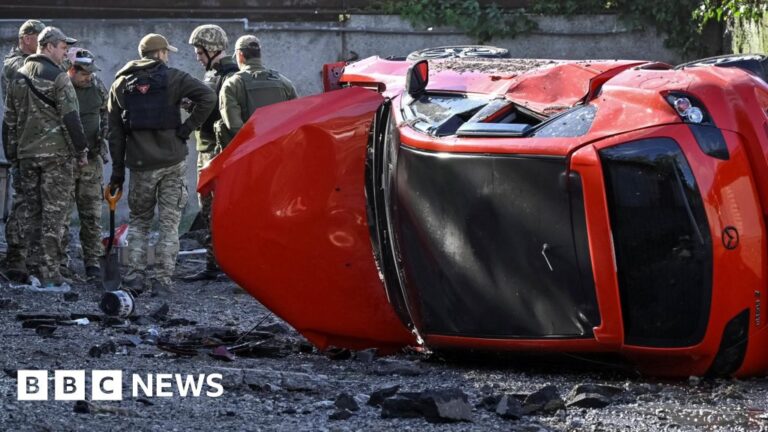In a weighty assertion shared throughout social media platforms, Ukrainian President Volodymyr Zelensky drew a daring historic parallel between the chilling echoes of WWII and the present disaster unfolding in Ukraine. By likening Russian President Vladimir Putin’s administration to the “Moscow Nazis,” Zelensky underscores a story of aggression and confrontation, resonating deeply inside the annals of European battle.
The official stance from Russia, as articulated by its Protection Ministry, frames their militant onslaught on Ukrainian power infrastructures as retaliatory strikes. This narrative unfolds in opposition to a backdrop of persistent Russian bombardments on Ukrainian energy services, a tactical shift noticed for the reason that onset of winter 2022. In a reciprocal show, Ukraine has launched a number of assaults on Russian oil services within the intervening weeks.
Initiated in March, Russia’s relentless marketing campaign in opposition to the Ukrainian power grid has precipitated a collection of cascading crises. Ukrainian authorities, grappling with the infrastructural demolition, have been compelled to institute rolling blackouts throughout a number of areas, signaling a dire pressure on civilian life.
On a big Tuesday, as Mr. Putin was inaugurated for his fifth time period, he characterised the upcoming part as “troublesome and important.” It was a second that he pledged would provoke Russia in direction of heightened fortitude.
President Zelensky, with resolute tenacity, accuses Russia of manifesting a resurgence of Nazism, albeit beneath a contemporary guise – a brand new model labeled “Made in Russia.”
The repercussions of those geopolitical maneuvers grew to become obviously tangible when three key thermal energy crops suffered substantial harm in a latest assault, as reported by DTEK, Ukraine’s predominant power provider. This incident marks the fifth prevalence inside a seven-week span the place DTEK’s services confronted important ravages.
Regardless of the vast majority of its producing capability being compromised, the power operator stands undeterred. DTEK’s dedication to restoring energy underscores the resilience inherent in Ukraine’s battle for sovereignty and the sustainment of a lifetime of dignity for tens of millions of its residents, as echoed by CEO Maxim Timchenko.
The Ukrainian Power Ministry has relayed potential restrictions on power provides to industrial shoppers, earmarked for particular night hours, owing to the prevailing damages.
Evidently, the technique of concentrating on pivotal power and transportation nodes has been indiscriminate, with assaults spanning throughout main cities like Kiev, Vinnitsa, and Lviv, amongst others. The enduring purpose seems to sever Ukrainians from important utilities, as articulated by Power Minister Herman Halushenko.
Regardless of the adversity, Ukraine’s air defenses have showcased outstanding efficacy, intercepting a good portion of aerial assaults. What stays to be seen, nonetheless, is the long-term impression of those offensives, particularly because the winter season attracts close to, a interval marked by peak power consumption.
Lastly, an uncommon narrative unfolds as Polish authorities report the detention of a Russian military deserter, marking a nuanced subplot inside the broader geopolitical confrontation.
